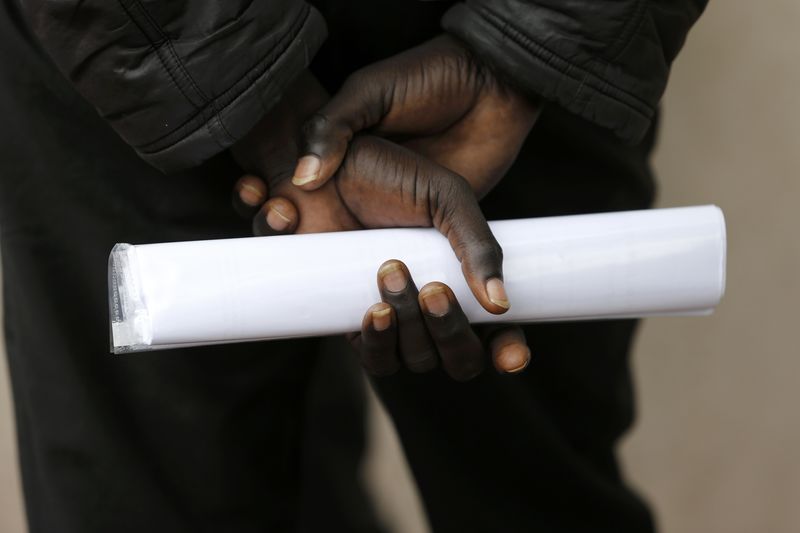BRUSSELS (Reuters) - The European Commission will decide next month on any legal cases against countries failing to resettle asylum-seekers as agreed in the bloc, taking a small step towards potential punishment for Poland and Hungary.
The Commission, the European Union's executive, said on Tuesday that some countries could avoid showing solidarity with Greece and Italy by taking in some of the asylum-seekers reaching their shores from across the Mediterranean
The bloc's 2015 decision to distribute there newcomers across the EU has proven controversial and fewer than 18,500 people have been relocated so far under the two-year plan meant to cover 160,000.
While some EU states have been slow and taking asylum-seekers in reluctantly, formerly communist easterners Poland and Hungary have refused to host a single person.
"It cannot be that while the majority of member states are making real efforts in a real European spirit, others continue to show no solidarity," EU Migration Commissioner Dimitris Avramopoulos told a news conference.
"This is why I call on Poland and Hungary, who have not relocated a single person in need of protection, to start doing so right now."
The Commission said it would decide next month on whether to open the so-called infringement procedures over relocation against countries not fulfilling their obligations.
Apart from Warsaw and Budapest, which took the whole relocation scheme to the EU's top court, the Commission also singled out the Czech Republic, saying it has not been active on that front for a year.
Austria is another EU state that has so far received nobody under the plan but it has now pledged to take in people from Italy. The Commission said it must do the same for Greece.
The relocation plan has been agreed amid record-high arrivals of refugees and migrants from the Middle East and Africa into the EU.
The bloc took in some 1.6 million people in 2014-2016. Greece has seen numbers drop after the EU sealed a deal with Turkey that cut off this route, but Italy is now under bigger pressure with arrivals from the shores of lawless Libya.
The EU's border agency Frontex said separately on Tuesday that April saw nearly 13,000 people disembark in Italy, up a fifth from March.
Separate U.N. data shows 55,215 refugees and migrants have made it across the Mediterranean to Europe so far this year, compared to more than 360,000 people in the whole of 2016.
Those taking the Libya-to-Italy route are more often migrants fleeing poverty in Africa and are less likely to win asylum in Europe than those seeking to escape wars, mainly Syrians.
